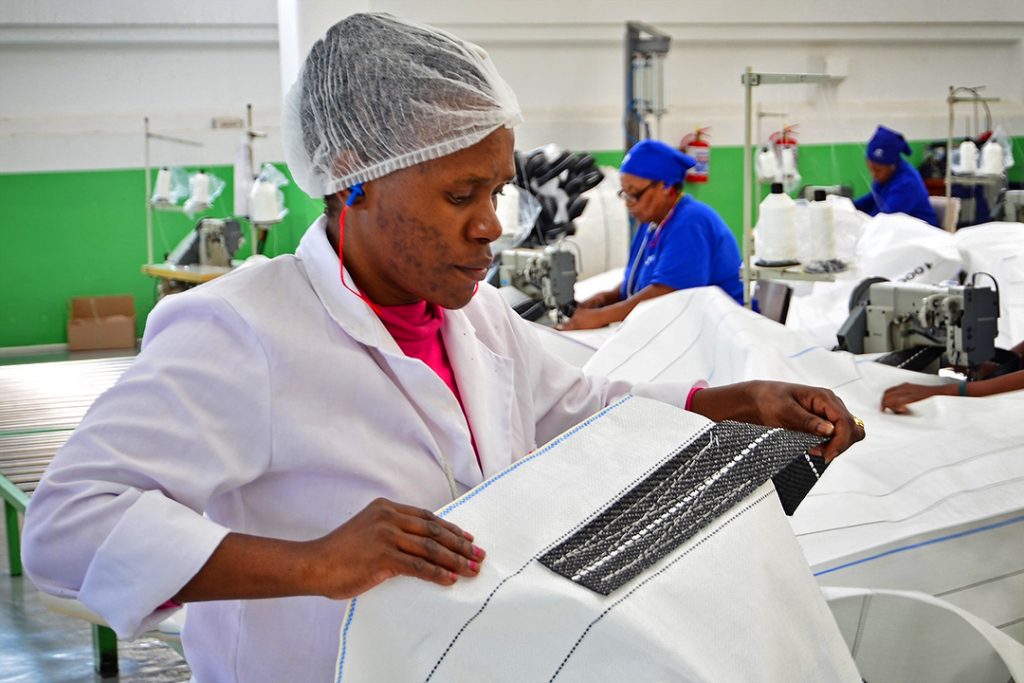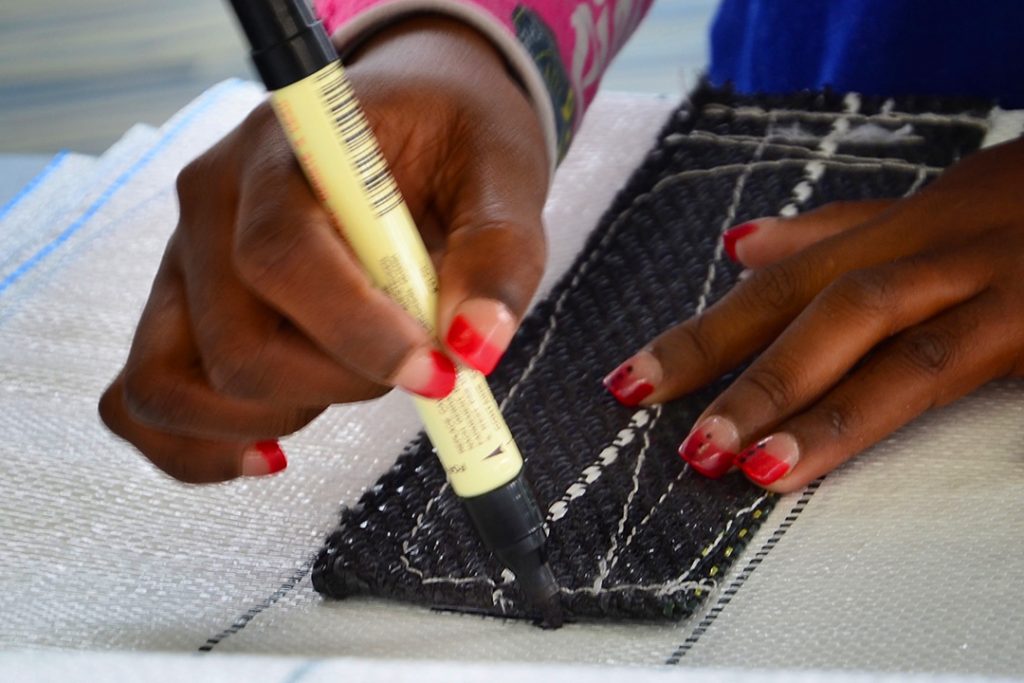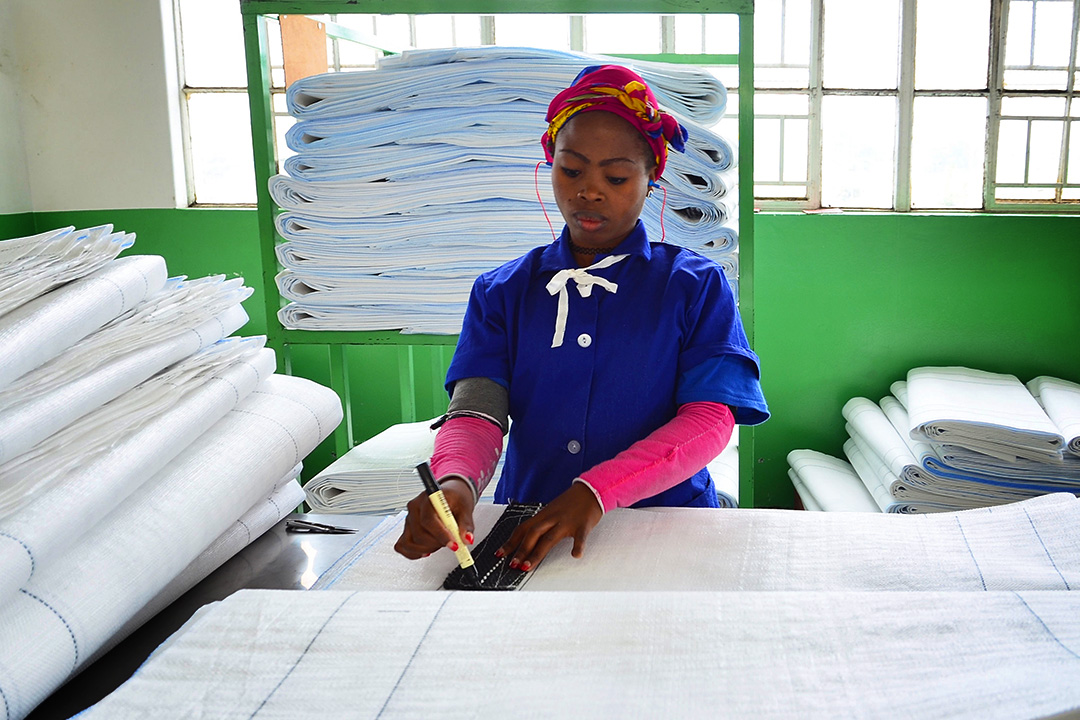Did you know that bulk bags can be reused? Using reconditioned bulk bags for storage will help to minimise waste in landfills while also saving money for those who reuse them. However, the bulk bags should be carefully inspected before loading any product to ensure that they still meet quality standards and performance ratings.
Custom Bulk Bags have a minimum 5:1 safety factor. To ensure that this safety rating remains, a rigorous rejection, cleaning, restoring and testing procedure should be followed to ensure maximum integrity of the reconditioned bags. Custom Bulk Bags can do this entire cleaning and refurbishing process on behalf of the customer to ensure efficiency and maximum effectiveness.
The following is an explanation of how to assess the quality of a bulk bag before reusing it:
Quality assessment of bulk bags

Before taking the bulk bags through the cleaning and reconditioning process, someone must inspect the bags to see whether they can be safely processed. Bags with rips, holes or loose sewing threads should be discarded and recycled immediately. The following issues and weaknesses normally cannot be fixed:
- Splinters in the material.
- Mould due to damp storage conditions.
- Damage to the fabric of the bag and other attachments.
- Contamination of hazardous materials.
The items above prevent the bags from being reused because cleaning cannot remove mould, contamination or wood splinters. Damaged lifting straps or holes in the fabric cannot be fully repaired by reconditioning without affecting the safety factor. Any bulk bag that was used to store hazardous materials should also not be reused.
Previous use may affect quality
The previous use of the reconditioned bulk bag also influences whether it is suitable for reuse. Poor storage conditions, for example, that resulted in UV damage to the fabric can preclude it from being reused. There are a few other factors that might shorten a bag’s life span or prevent it from being stored safely:
- Exposure to high temperatures.
- Exposure to rain and moisture.
- Storage in outdoor areas.
- Mishandling of loops and straps.
Cleaning bulk bags after use
Cleaning can take place after it has been confirmed that the bulk bag is safe for reuse. Unwanted debris should be the first thing to be removed during this process. Everything in the bag’s interior should be removed and, if the bag had an inner liner, this must be replaced during the cleaning process.
Testing for quality

It is important to check the quality of your bulk bags before reusing them. This means that they need to undergo a thorough quality assurance process to verify their durability and usability. Be sure to keep detailed records of the quality testing procedures. These can be referred to at any time in the future and will act as an assurance that all appropriate procedures have been followed.
Randomised top lift testing is an important safety precaution to follow before approving bulk bags for reuse. Any bags that fail a safety test should be sent to the recycling facility immediately. Bags that pass the test can be certified for reuse and their quality guaranteed.
It is important to store and handle bulk bags safely and correctly, as this directly affects their ability to be reconditioned and used again. For more information on our bulk bag products or to get a quote, please contact us today.
___
Custom Bulk Bags is a South African manufacturer of woven polypropylene bags for various industries, such as mining, chemicals and food. We are able to produce over 3.5-million bulk bags per year, keeping our customers in stock at all times. Our bags adhere to the highest levels of quality as a result of our stringent in-house testing and quality control programmes.
Custom Bulk Bags holds ISO 9001 certification and we currently have a number of UN-certified designs. We are a Level 3 B-BBEE manufacturer and supplier and fall under the ownership structure of Deneb Investments Limited. For more information on our products, contact sales@custombulkbags.co.za. Follow us on Facebook for our latest news and industry insights.

